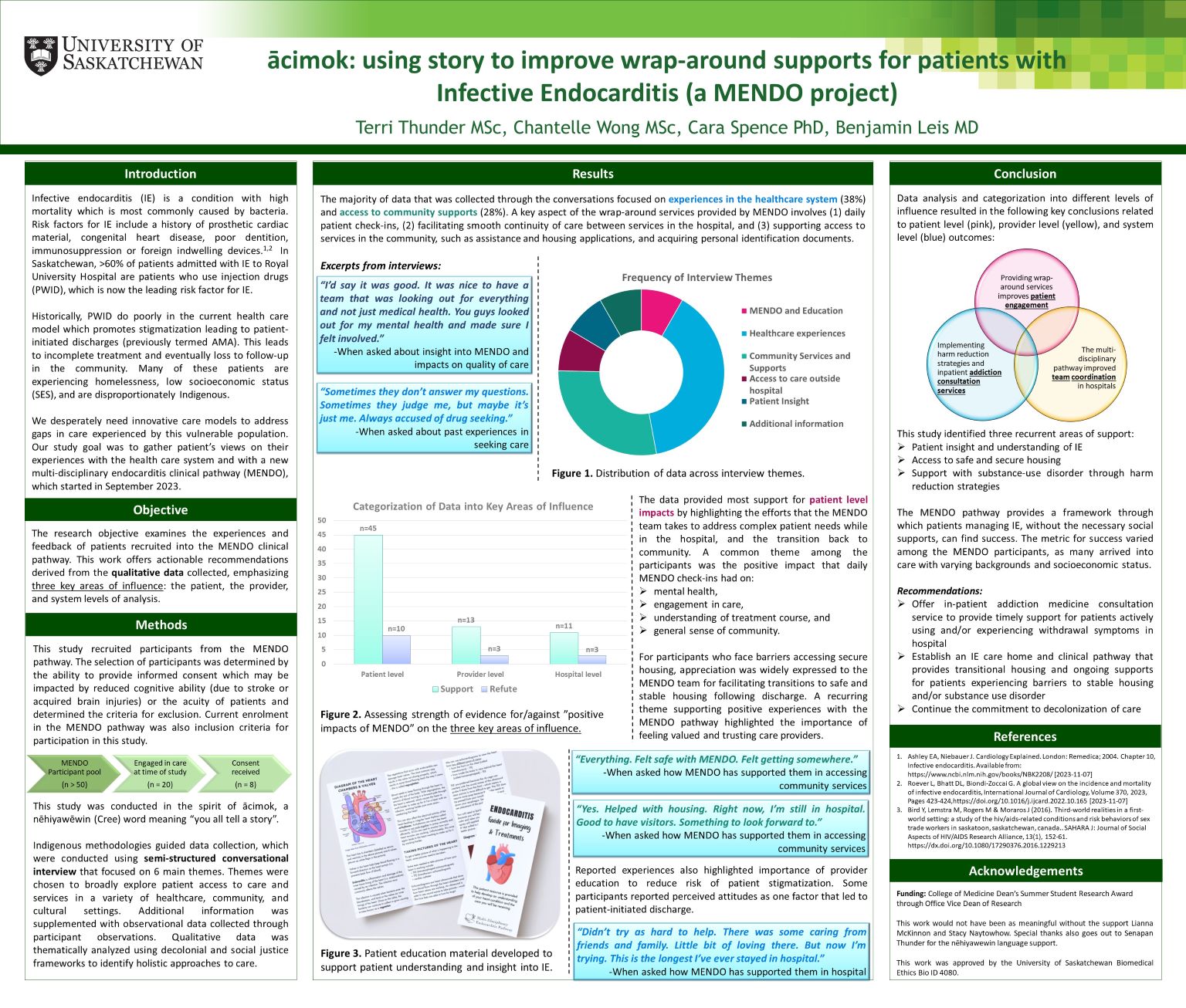
ācimok: Using Story to Improve Wrap-around Supports for Patients with Infective Endocarditis (a MENDO project)
Terri Thunder
Infective endocarditis (IE) is a life-threatening condition, often caused by bacteria, with over 60% of cases at Royal University Hospital, Saskatoon involving people who use injection drugs (PWID). PWID face significant challenges in the healthcare system, including stigma, patient-initiated discharges, incomplete treatment, and loss to follow-up. Many also experience homelessness, low socioeconomic status, and are disproportionately Indigenous. This study explored patient experiences within the healthcare system and with the multi-disciplinary endocarditis clinical pathway (MENDO), which was introduced in September 2023. Data was collected via semi-structured interviews and the participant-as-observer method, and thematically analyzed through decolonial and social justice frameworks. The analysis highlighted three levels of influence: patient, provider, and hospital. Based on this categorization, this work has identified three main areas of support that are needed to improve patient health outcomes: patient understanding and education, access to safe and secure housing, and assistance for substance use disorder through harm reduction strategies. This work informed development of patient resources, and recommendations were proposed to address other gaps that were identified. Additional work to gather longitudinal data of patients who have completed treatment with support from MENDO is needed to determine impacts on long term outcomes.
